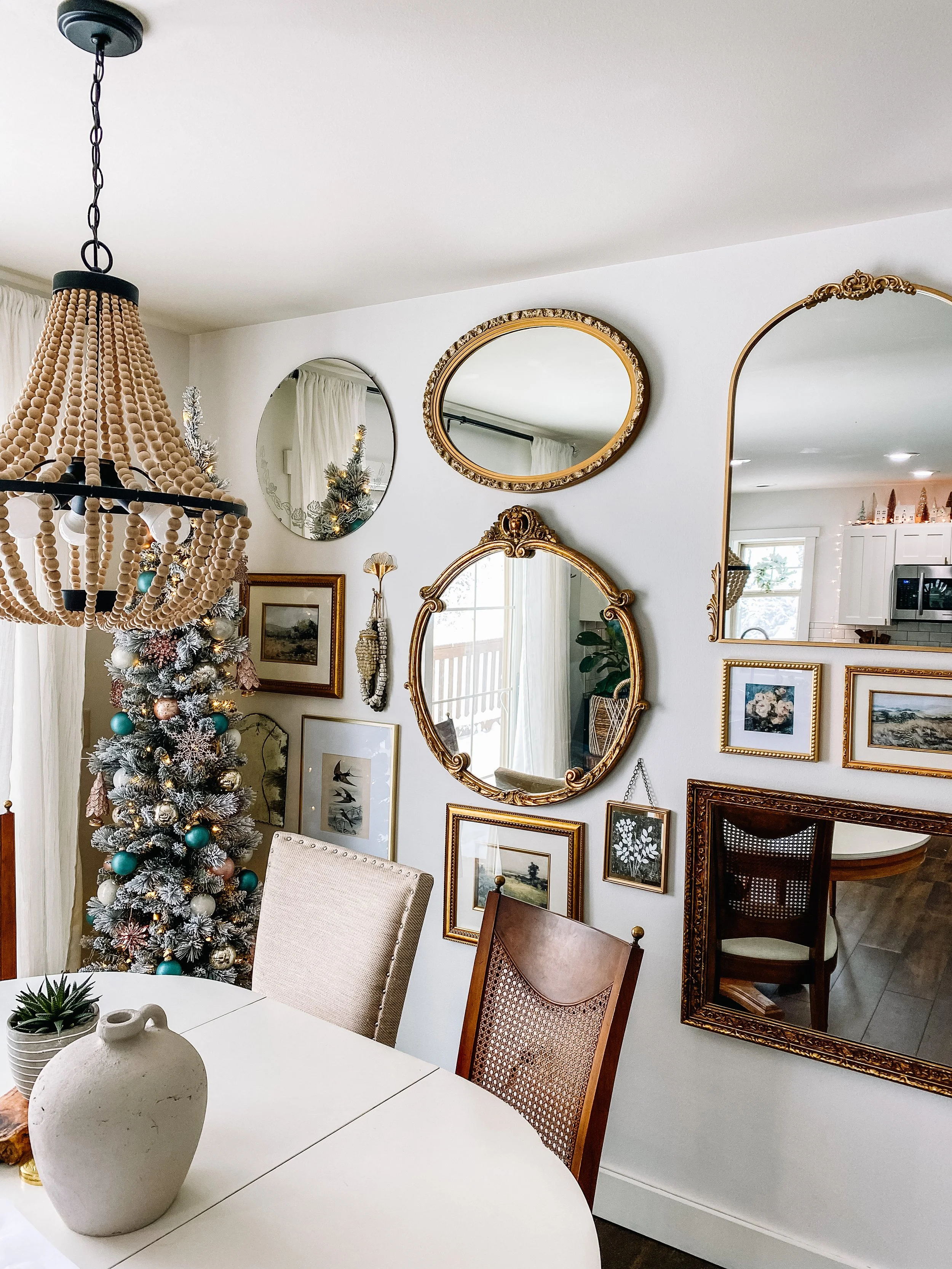Mirror Placement: How to Use Mirrors for Positive Energy & Balance
Mirrors are powerful tools in Feng Shui, capable of expanding space, enhancing light, and influencing the flow of Chi (energy) in a home. However, improper placement can disrupt harmony, reflect negative energy, or create an imbalance in specific areas of life. Understanding how to use mirrors mindfully can transform your space, bringing in clarity, abundance, and peace.
The Power of Mirrors in Feng Shui
Mirrors can quickly shift energy in a home. They represent the water element, symbolizing reflection, wisdom, and fluidity. When placed correctly, mirrors can:
Expand and brighten dark or small spaces.
Attract positive energy and amplify abundance.
Correct missing elements in a room’s Feng Shui layout.
Redirect or slow down fast-moving energy.
However, mirrors also double energy—both good and bad—so it’s essential to be mindful of what they reflect.
Best Places to Place Mirrors for Good Feng Shui
1. The Dining Room: Amplifying Abundance
The dining room is one of the best places for a mirror because it symbolizes abundance and nourishment. A well-placed mirror here doubles the energy of food and gatherings, inviting prosperity into the home.
Placement Tip:
Hang a large mirror on a wall where it reflects the dining table.
Avoid placing mirrors too high—everyone seated should be able to see their reflection.
2. The Entryway: Inviting Positive Energy
Mirrors in the entryway can be beneficial, but placement is key. They can expand the space and create a welcoming energy for guests and opportunities.
Best Placement:
Place a mirror on a sidewall in the entryway to reflect light and create openness.
If your entryway feels dark or small, a mirror can help brighten and expand the space.
Avoid: Never place a mirror directly facing the front door, as it can push energy back out, preventing positive Chi from entering the home.
3. The Living Room: Expanding Light & Harmony
Mirrors can enhance the living room by creating depth and reflecting joyful energy from gatherings and conversations.
Best Placement:
Position a mirror where it reflects natural light or a beautiful view from outside.
Use mirrors to visually expand small spaces without overwhelming them.
Avoid: Don’t place a mirror reflecting clutter, an empty wall, or a television, as it can double stagnant energy or distraction.
4. The Bedroom: Use with Caution
The bedroom is a place for rest and relaxation, so mirrors must be used carefully. While they can add beauty and depth, they can also disrupt sleep if positioned incorrectly.
Best Placement:
If you must have a mirror, place it inside a closet door or an area where it doesn’t directly reflect the bed.
Small decorative mirrors or mirrored nightstand accents are fine, as long as they don’t create energetic overstimulation.
Avoid: Never place a mirror facing the bed. Feng Shui suggests that this can cause restlessness, amplify stress, or even invite a third-party energy into relationships. If you have a mirror reflecting your bed, consider covering it at night.
5. The Kitchen: Avoid Mirrors Here
Feng Shui generally advises against placing mirrors in the kitchen, as they can amplify fire energy and create an imbalance. A mirror reflecting a stove is thought to overactivate energy, leading to tension or instability in the home.
Avoid: Mirrors reflecting the stove or kitchen clutter, as they can double chaotic energy.
6. Hallways: Enhancing Flow
Hallways are often areas where energy moves too quickly or stagnates. A well-placed mirror can help balance Chi flow.
Best Placement:
Place mirrors along a hallway to create a sense of expansion and movement.
If a hallway feels dark, a mirror can help reflect light and brighten the space.
Avoid: Never place a mirror at the end of a long hallway, as it can create a feeling of blockage or energetic stagnation.
7. The Bathroom: A Balanced Approach
Bathrooms tend to drain energy due to the constant outflow of water, which represents wealth and resources in Feng Shui. Mirrors should be placed mindfully to counterbalance this effect.
Best Placement:
A mirror above the sink is fine but should be kept clean and clear to reflect fresh energy.
Round or oval mirrors soften the sharp energy in a bathroom.
Avoid: Don’t place a mirror directly facing the toilet, as it can amplify draining energy.
Final Feng Shui Mirror Tips
Keep mirrors clean—dirty or broken mirrors reflect distorted energy.
Use frames—framed mirrors contain energy better than frameless ones.
Reflect beauty—always position mirrors where they reflect something uplifting, like nature, art, or natural light.
Avoid oversized or fragmented mirrors—they can distort Chi and create an unsteady feeling.
Don’t face two mirrors together. This can cause a constant reflection can create an overwhelming or disorienting environment, making it difficult to focus or relax. Two mirrors facing each other can also create an energetic "portal" because of the endless reflections.
By following these Feng Shui mirror placement tips, you can enhance the energy of your home, creating a space that supports balance, clarity, and prosperity.



